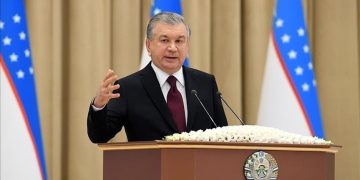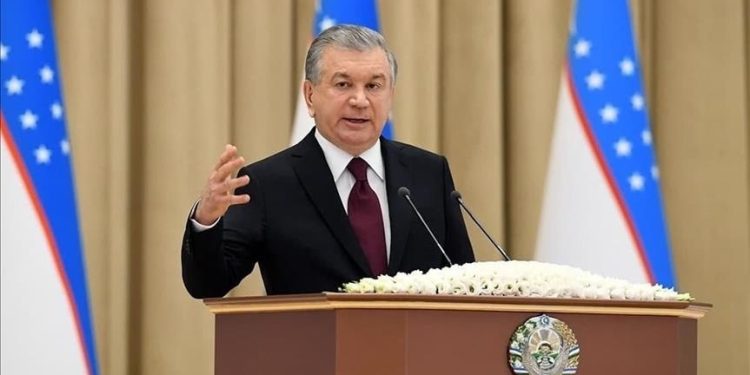Dr. Mehmood Ul Hassan
The Republic of Uzbekistan under the visionary leadership of his president H.E. Shavkat Mirziyoyev is striving hard towards more rigorous “politicization” and “democratization” through the expected introduction of certain amendments in the Constitution. It would be “giant step” towards total “transformation” of the “State” apparatus, administration, governance, transparency, accountability and fair play in the politics, civility, society and economy too.
Moreover, it would be a “paradigm shift” in the existing political system of Uzbekistan towards more “responsiveness” and “openness” having new means to form a more liberalized macro-economy, vibrant society, accountable administration, decentralization of power, separation of powers, checks & balances, welfare of the common people, protection and institutionalization of human rights, social justice and last but not least, economic stability and sustainability.
That is why a drastic change is going to follow and implement by putting “Person” first by changing the operating/existing paradigm “state, society, person” with new doctrine “person, society, and state through constitutional legislation and constitutional practice. Thus Person/people would be the ultimate center of attraction in the new constitutional changes.
Ours is the age of rigorous economic reforms, people’s friendly politics and interactive State and the Society. People’s friendly policies would be “core” of new changes in the constitution in the series of new economic reforms thus it would discourage process and practice of excessive profits, cronies and cartels in the national economy. It would promote sense of fair-play, economic equality, corporate equity and transparency in Uzbekistan. It would be a giant leap towards “People’s State Doctrine”.
Through implementation of series of constant economic, political and societal reforms there is going to be a drastic change in “perception”, “practice” and “production” of the Uzbek State and civil society. Now all these reforms will be further integrated and consolidated to give more “imputes” to civil society and institutions on the plea that “Society is the initiator of reforms”. It would be “positive”, “productive” and “participatory” in all spheres.
Humans have become more important than the government and the state around the globe and same is the case of Uzbekistan. By changing the constitutional perspective towards family, traditional human values and inter-ethnic or multiculturalism in the country, it is hopes that Uzbekistan would become an ideal country for human rights and “multiculturalism”, the driving forces of robust socio-economic development and political stability.
There are other important priority areas i.e. youth policy to support youth of the country in all respects. New job generation, qualitative “human capital” would be mantra and main priority of New Uzbekistan.
It seems that due to many interrelated socio-economic, geopolitical and geostrategic trends in the region and around the globe, the governments are preserving the state engineering by adopting ancient philosophy of socialism of state, economy and society too. The implementation of “New Uzbekistan: a social state” would be paradigm shift in the country which has multiplier effects.
It also seems that apparatus of Uzbek State is under drastic overhauling and transformation. Now human rights protection, preventing child labor, reliable protection of the rights of persons with disabilities, representatives of the older generation are going to further streamlines and systematized. It would be a major task and priority area which has immense importance and dividend too.
Expected priority areas pertaining to protection of climate change, biodiversity, water conservation, and friendly environmental policies would be a value addition towards easy and smooth transition towards smart economy, living and green revolution in the country.
To conclude I really appreciate the priority changes of Uzbekistan’s constitution in terms of protection of human rights, social protection/development, decentralization of socio-politico-economic powers, governance, education, health, economic equality, transparency, accountability and rigorous but befitting and people’s friendly politicization and democratization would people and its state a special bonding of mutual trust, respect, productivity, progress, and prosperity and the Republic of Uzbekistan would easily start its journey towards the third Renaissance.
(The author is Director: The Center for South Asia & International Studies (CSAIS) IslamabadRegional Expert: Uzbekistan & CIS)




